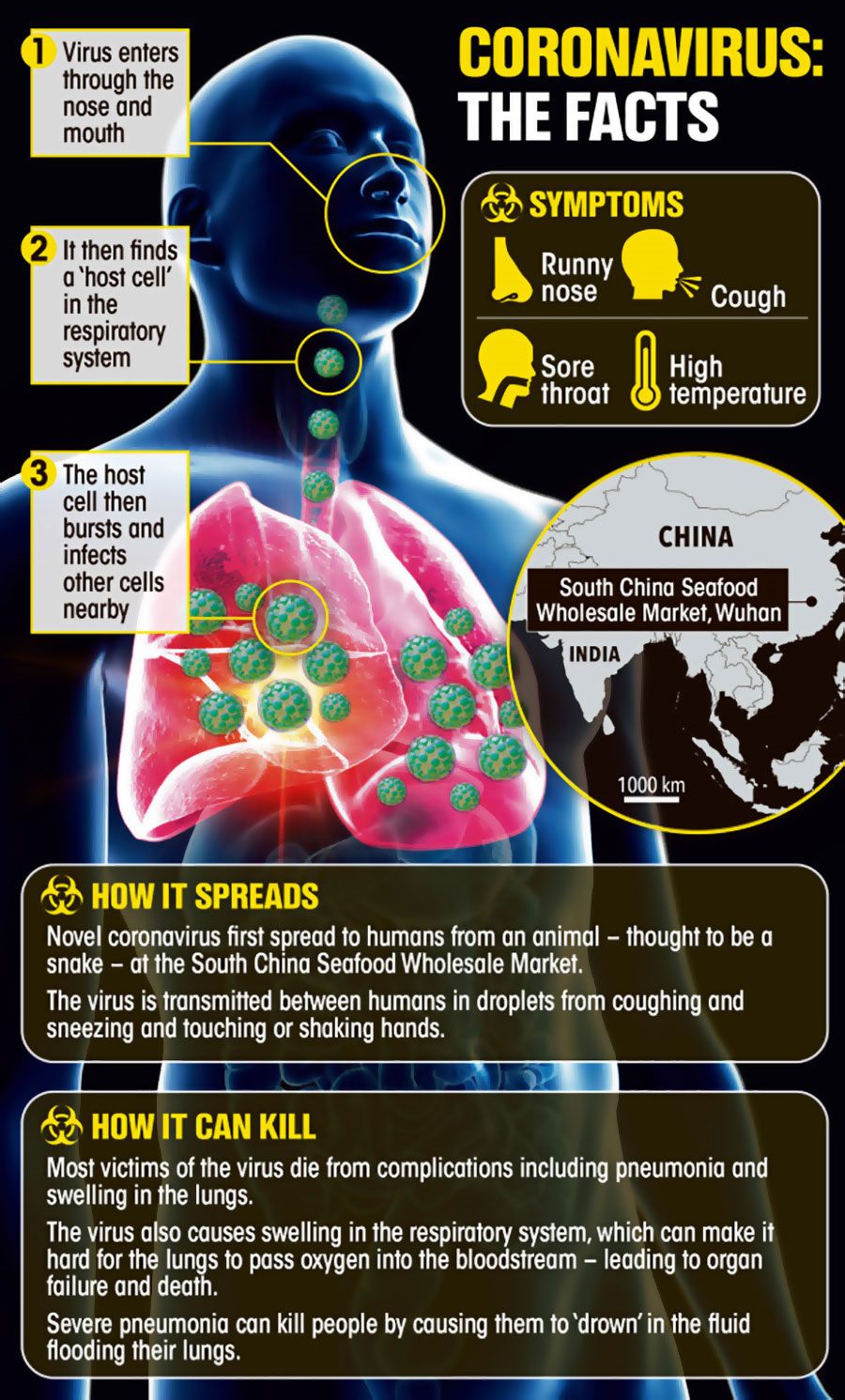According to a study, the virus that causes coronavirus (COVID-19) remains stable for up to 3 days on some surfaces. Severe acute respiratory syndrome coronavirus 2, or SARS-CoV-2, the virus that causes coronavirus, was detected in aerosols (suspension of tiny particles or droplets in the air) for up to 3 hours, and could also be detected for up to 24 hours on cardboard, and was detectable for up to 2 – 3 days on stainless steel and plastic. The study results suggest that the virus may be acquired through the air and also after coming into physical contact with objects that have been contaminated.[1]
A comparison was made how SARS-CoV-2 and SARS-CoV-1 are affected by the environment. SARS-CoV-1 causes the SARS disease and also originated in China, infecting more than 8,000 people in 2002/3. Intensive contact tracing and case isolation measures successfully eradicated SARS-CoV-1, with no detection of cases since 2004.The two viruses behaved similarly in the stability study, which did little to help explain why the COVID-19 outbreak has become so much larger.
The researchers mimicked the virus being transferred from an infected individual onto common household or hospital surfaces. The length of time the virus stayed infectious on the surfaces was then investigated.
Highlights from the study:
- Why is SARS-CoV-2 causing more cases if the viability of the 2 coronaviruses is similar? It has been suggested that infected individuals could be spreading the virus before or not recognizing symptoms. This means that the disease control measures that were effective against SARS-CoV-1 would not be as effective against the current coronavirus.
- The majority of secondary cases of SARS-CoV-2 virus transmissions appear to be happening in community settings as opposed to healthcare settings, in contrast to SARS-CoV-1. Healthcare settings are however also vulnerable to the introduction and spread of SARS-CoV-2, and the stability of SARS-CoV-2 in aerosols and on surfaces probably contributes to healthcare setting transmissions.
The results confirm the public health professional guidance for using precautions like those for influenza as well as other respiratory viruses for preventing the spread of this coronavirus:
- Covering your sneeze or cough with a tissue, then throwing the tissue in a sealable trash receptor.
- Avoid the touching of your face.
- Staying at home if sick.
- Avoiding close contact with sick individuals.
- Cleaning and disinfecting surfaces and objects which are frequently touched making use of a regular household cleaning spray or wipe.
